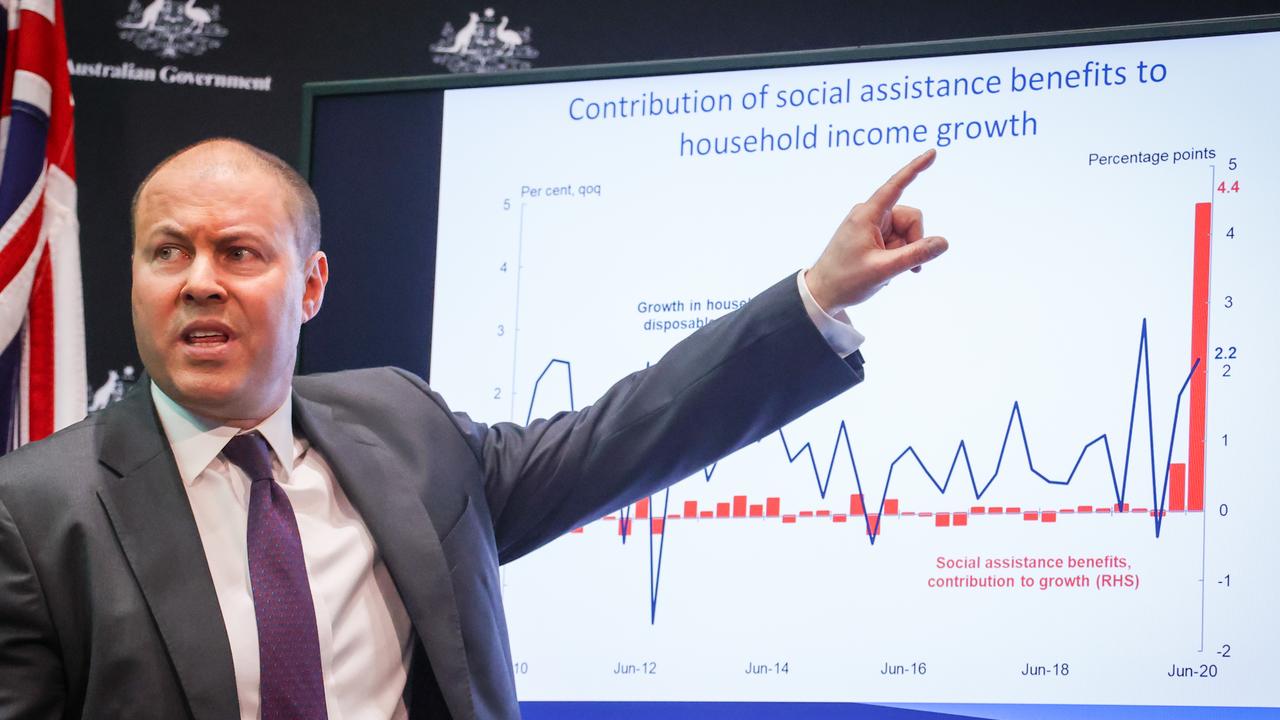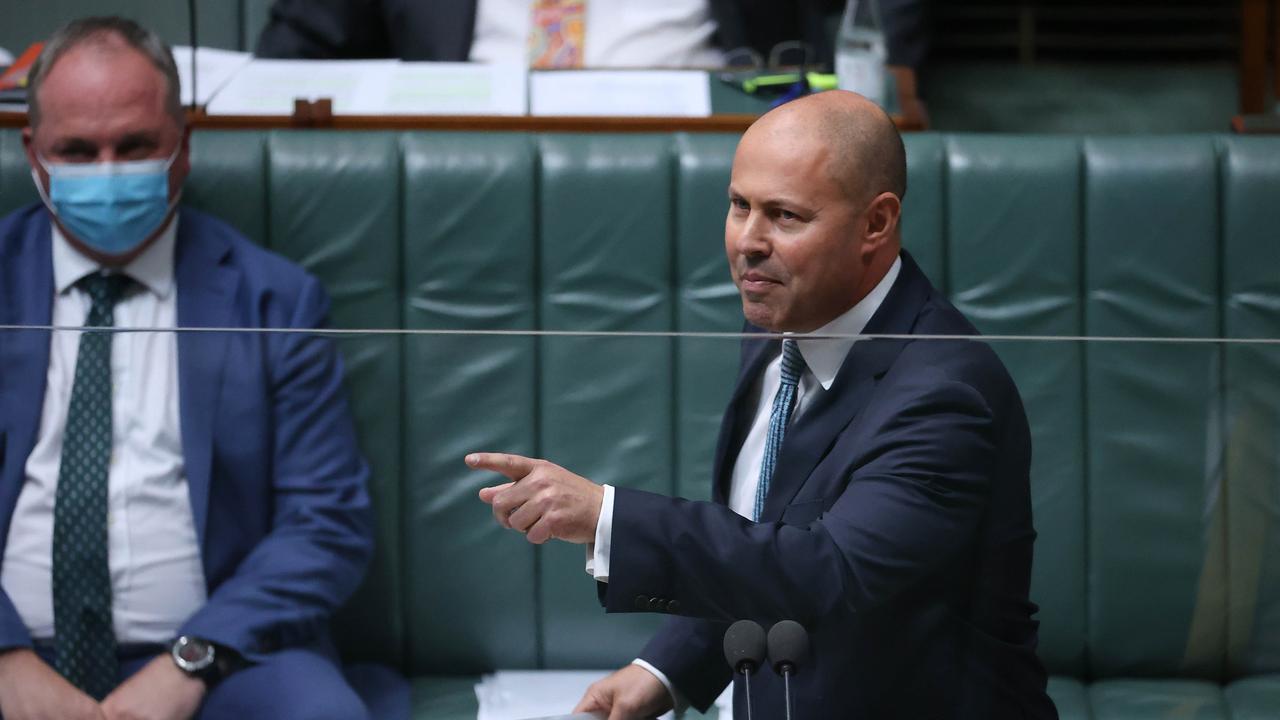National accounts: Australia’s GDP bounces back from Delta blow with December quarter growth
A surge in household spending helped Australia’s economy rebound in the December quarter, prompting this claim.

The Australian economy may have surged into the new year but economists are already bracing for the blow of the Omicron wave, rising inflation, and mounting Ukraine-Russia tensions.
The Australian Bureau of Statistics on Wednesday reported gross domestic product for the December quarter expanded by 3.4 per cent as lockdowns in NSW and Victoria lifted and consumers ripped their wallets open in a spending surge.
Recreation and culture, cafes and restaurants and clothing and footwear experienced strong gains in the final three months of the year as household spending leapt 6.3 per cent and shoppers enjoyed the brief window before the Omicron variant reared its head.
“This is the equal strongest quarterly growth in 46 years, with Australia’s recovery from Covid outperforming all major advanced economies,” Treasurer Josh Frydenberg said on Wednesday.
“Australia is a world beater.”

The December quarter GDP gain was largely in line with expectations and reversed a 1.9 per cent drop during the Covid-affected September period when government-enforced mandates again kept people indoors.
Year-through GDP growth accelerated from 3.9 per cent in September to 4.2 per cent in December.
This means Australia‘s economy is now 3.4 per cent larger than it was at the start of the pandemic, outperforming global peers such as the United States, the United Kingdom, Japan, Canada, Germany, Italy, and France.
Economists' predictions for the December rebound fluctuated wildly – with consensus landing on a 3.5 per cent quarterly gain – although many already have cautious eye on the period ahead.
“As always, the national accounts report is old news,” ANZ senior economist Felicity Emmett wrote in a note.
“Economists and markets have moved on from the Delta rebound, looked through the shallow Omicron wave and are now focused on mounting inflationary pressure and growth uncertainties.
“While the RBA is likely to be heartened by the strength in the recent data, it is also likely to see the risks to the outlook broadening with the Russia-Ukraine conflict.”
#BREAKING: The Australian economy has grown 3.4% in the December quarter.
— Josh Frydenberg (@JoshFrydenberg) March 2, 2022
This is the equal strongest quarterly growth in 46 years, with Australia’s recovery from COVID outperforming all major advanced economies.
Australia is a world beater. pic.twitter.com/l36vI2pi8o
Callam Pickering, APAC economist at jobs site Indeed.com, agreed that the December quarter put Australia’s economy on favourable footing compared with its global peers.
But he too was cautious about the start to 2022.
“The December quarter already feels like a lifetime ago following the rapid spread of the Omicron variant,” Mr Pickering said.
“While this is proving disruptive for businesses, leading to record sick leave claims, the broader economy appears to be holding together through January and February.
“Forward-looking economic measures, such as job vacancies, suggest that job creation remains strong and that’s a pretty clear sign that the recovery remains on track.
“Retail trends for January were also positive which highlights the resilience of the household sector.”

“For policymakers this GDP result may surprise a little on the upside but certainly not to the extent that it would change the interpretation of the economy or expectations of the future. Most of what was in the GDP report was already known prior to the RBA board meeting yesterday (Tuesday).”
The Reserve Bank of Australia’s February statement on monetary policy had forecast a 5 per cent year-through growth to the end of December quarter – having previously tipped a 3 per cent rise.
The board noted the Australian economy had established solid momentum prior to the Omicron outbreak at the end of 2021.
“Domestic economic activity bounced back strongly in the December quarter, driven by a surge in household spending as restrictions relating to the Delta outbreak were eased,” the RBA said.
“The spread of the Omicron variant will slow growth in the March quarter but is expected to have a much smaller impact on economic activity than previous waves of Covid-19.”
ABS national accounts acting head Sean Crick said a reduction of government support payments to households and unincorporated businesses affected by Covid-19 brought household income lower for the period.
This – along with a spending surge – weighed the household saving to income ratio from 19.8 per cent to 13.6 per cent.



